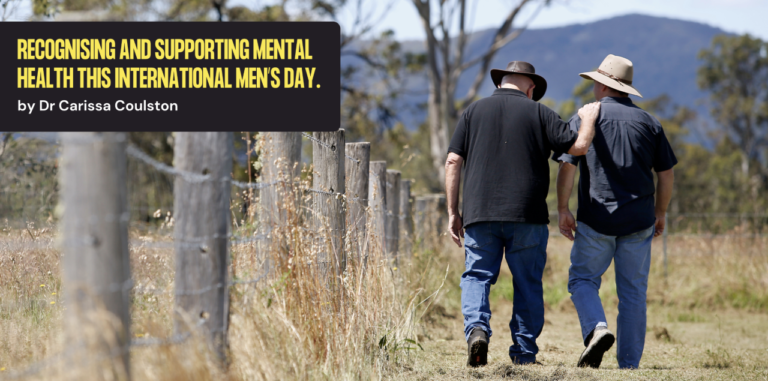International Men’s Day aims to raise awareness of issues affecting men’s health and well-being. This year, the focus is on suicide and mental health, reflecting the fact that men are far more likely to kill themselves than women.
Mental illness affects men and women equally, but the way they express and manage it can be very different.
UNDERSTANDING THE GENDER GAP MENTAL HEALTH
The gender gap in mental health is a complex issue that cannot be reduced to simplistic generalizations. However, many mental health professionals often report that different patterns emerge in how men and women experience and express mental health concerns.
Triggers and manifestation of symptoms
The most common triggers for depression and anxiety in men include work stress, financial pressures and relationship problems.
When it comes to depression, men may be less likely than women to express traditional symptoms such as sadness and tearfulness. Instead, they may experience irritability, anger, and increased risk-taking behavior.
When it comes to stress, men may experience more physical symptoms such as muscle tension, stomach aches, headaches or other physical complaints. In contrast, women tend to report emotional symptoms such as excessive worry, fear, and worry.
Social Stigma and Communication Style
From an early age, society often teaches males to be stoic, self-reliant, and suppress their emotions. As a result, men tend to be less open about their mental health issues because they fear being seen as weak. Conversely, women find it easier to express their feelings and reach out when needed.
Coping mechanisms and suicide rates
Women may be more inclined to seek social support and talk about their feelings, while men often rely on action-oriented solutions. Men are more likely to engage in physical activity or work as a distraction from their problems, and unfortunately, men are also more likely to turn to substance abuse (particularly alcoholism), isolation, and other unhealthy behaviors.
Given their tendency to avoid opening up and seeking help for mental health problems, men are also about three times more likely than women to kill themselves. In 2022, men accounted for 75.6% of deaths by suicide with the median age for men being 46.0 years.
HOW CAN WE BETTER SUPPORT MEN’S MENTAL HEALTH?
To promote better mental health outcomes for men, it is important to foster an environment of more understanding and understanding. Ways men can be supported include:
- Encourage open communication
Creating an environment where men feel comfortable talking about their mental health struggles is vital. Friends, family and colleagues can play a vital role in encouraging open and non-judgmental discussions. It is important to note that no issue is ever too small or trivial to share because any issue can become a bigger issue if not addressed as soon as it arises.
- Promote professional help
Mental health professionals can provide individualized support to address specific needs for men. A local doctor or the Australian Psychological Society (https://psychology.org.au/find-a-psychologist) can connect you with an appropriate psychologist. There are also helpful online resources and support services, including MensLine Australia (https://mensline.org.au/) and Head to Health (https://www.headtohealth.gov.au/).
- Support groups focused on men
Men’s support groups can provide a safe space for men to share their experiences and challenges without fear of judgment. Relations Australia and ManOnline provides peer support groups for men. The SANE Forums (www.saneforuns.org) also provides a safe and non-judgmental space for men to connect with others in a similar situation.
Employers can play an important role in men’s mental health by offering employee assistance programs (EAPs), flexible work arrangements and mental health resources. Creating a supportive workplace culture is vital.
Men who participate in community activities and groups tend to build social connections and feel less isolated. Sports, hobbies and volunteering can provide opportunities for men to connect with others.
International Men’s Day is an occasion to celebrate every man’s role in life and society, but it is also a reminder of the unique challenges men face in managing their mental health.
Men and women may differ in how they express themselves and seek help for mental health, but the key lies in recognizing the causes and symptoms and understanding avenues for empathy and support.
By fostering an environment where men feel safe to share their mental health challenges and encouraging them to seek professional help when needed, important steps can be taken to promote better mental well-being.
